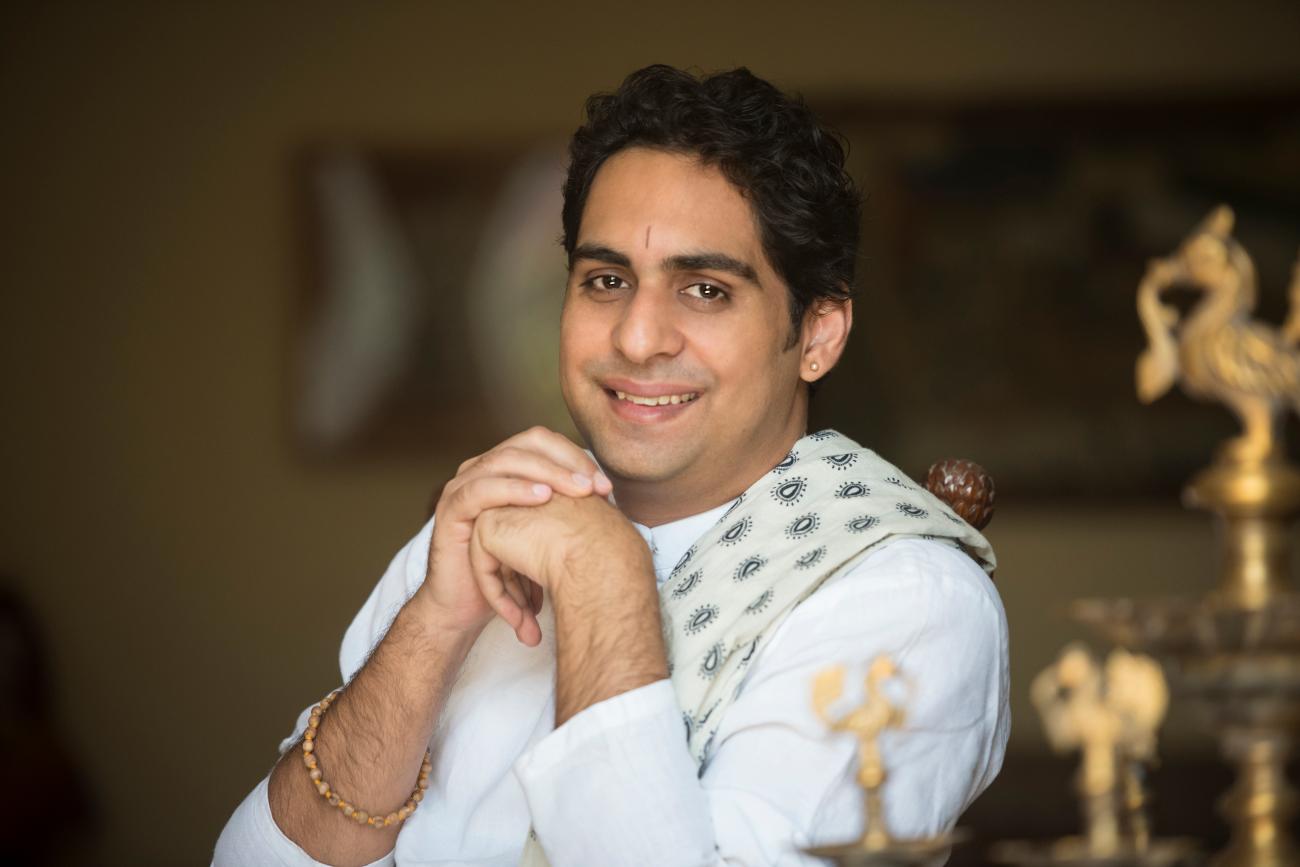The Nature of Love
Once there was a debate on the topic of love. A scholar from Benares said, “Everything we see in this world is love. You, me, your clothes, this chair, the dust, everything is love, which is complete in itself. Once you understand this fact, you become happy. This love gives you all the happiness you need, therefore you have no desire to seek it from other people or things.” His proposed theory attracted the listening audience, as they turned to each other and nodded.
The judge of the debate looked around to see if anybody was going to offer a counter-argument. Then one Brajwasi stood up and said, “Dear friends! This scholar has just said that everything is love, and once you realise this, you become happy. So, Mr. Scholar, are you completely content, since you understand the nature of love?” The scholar replied, “Yes, I am.” The Brajwasi said, “Evening has come. Shall we all take a break for our meal? I trust the scholar does not need to eat, because he is fully satisfied in the love that he is. Or will he feel dissatisfied if he goes without food? If this is the case, his philosophy is not concrete.” The scholar was left speechless.
When you experience real love, you are completely absorbed in it; you forget everything, even your own existence. I was reading about a mother whose son was stranded 1,400 kilometres away from home because of the nationwide coronavirus lockdown. He was helpless, but his mother drove an old motor scooter across many forests and dark streets, through villages and cities, crossings borders, explaining to every officer at each checkpoint that she had to bring her child back. The thought of bathing, eating, the danger of the pandemic and even her own wellbeing didn’t cross her mind for a moment, because she was so absorbed in the love that she has for her child. You may say that what she did is an act of madness; but the 17th-century Spanish poet Pedro Calderon de la Barca says, “Love that is not madness is not love.”
The same can be said about the nature of Krishn’s lovers. For example, the Shrimad Bhagwatam, 7.4.38, describes the qualities of of Krishn’s dearest devotee Prahlad:
The judge of the debate looked around to see if anybody was going to offer a counter-argument. Then one Brajwasi stood up and said, “Dear friends! This scholar has just said that everything is love, and once you realise this, you become happy. So, Mr. Scholar, are you completely content, since you understand the nature of love?” The scholar replied, “Yes, I am.” The Brajwasi said, “Evening has come. Shall we all take a break for our meal? I trust the scholar does not need to eat, because he is fully satisfied in the love that he is. Or will he feel dissatisfied if he goes without food? If this is the case, his philosophy is not concrete.” The scholar was left speechless.
When you experience real love, you are completely absorbed in it; you forget everything, even your own existence. I was reading about a mother whose son was stranded 1,400 kilometres away from home because of the nationwide coronavirus lockdown. He was helpless, but his mother drove an old motor scooter across many forests and dark streets, through villages and cities, crossings borders, explaining to every officer at each checkpoint that she had to bring her child back. The thought of bathing, eating, the danger of the pandemic and even her own wellbeing didn’t cross her mind for a moment, because she was so absorbed in the love that she has for her child. You may say that what she did is an act of madness; but the 17th-century Spanish poet Pedro Calderon de la Barca says, “Love that is not madness is not love.”
The same can be said about the nature of Krishn’s lovers. For example, the Shrimad Bhagwatam, 7.4.38, describes the qualities of of Krishn’s dearest devotee Prahlad:
आसीन: पर्यटन्नश्नन् शयान: प्रपिबन् ब्रुवन् ।
नानुसन्धत्त एतानि गोविन्दपरिरम्भित: ॥
āsīnaḥ paryaṭann aśnan śayānaḥ prapiban bruvan ।
nānusandhatta etāni govinda-parirambhitaḥ ॥
āsīnaḥ paryaṭann aśnan śayānaḥ prapiban bruvan ।
nānusandhatta etāni govinda-parirambhitaḥ ॥
“Whether sitting or walking, eating or drinking, lying down or speaking to others, he had no consciousness of these external acts, for he felt he was constantly embraced by the arms of his Lord.”
